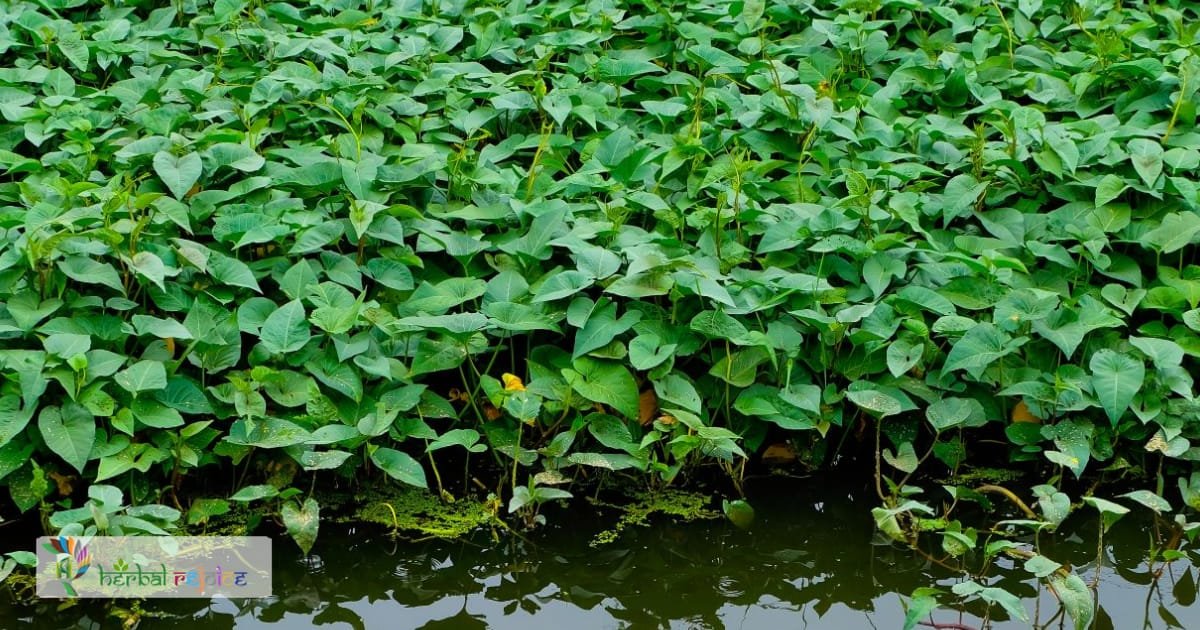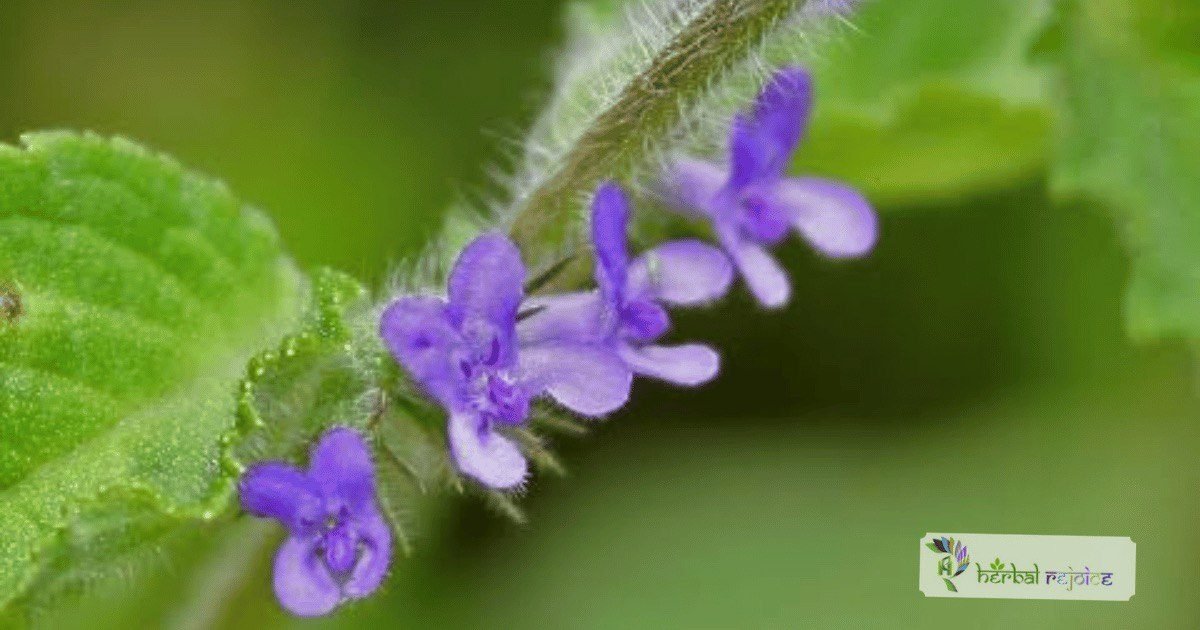Introduction
Swamp Cabbage (Ipomoea aquatica Forsk.), also known as Kalambi in Ayurveda and Vellaikeerai in Siddha/Tamil, belongs to the Convolvulaceae family. It can be found throughout most parts of India.
Swamp Cabbage exhibits emetic and purgative effects, as well as its ability to counteract arsenical or opium poisoning, make it a valuable antidote. This article explores the various uses and benefits of this plant, including its medicinal properties and its potential for wastewater treatment.

Medicinal Uses Of Swamp Cabbage
One of the primary medicinal uses of Swamp Cabbage is its emetic and purgative properties. It has been traditionally used as an antidote for arsenical or opium poisoning.
Additionally, the plant’s juice is known to be beneficial for liver complaints, while its buds can be used as a remedy for ringworm. Moreover, the leaves of Swamp Cabbage are an excellent source of minerals, with a content of 2.1%, as well as vitamins, especially carotene and tocopherol.
Furthermore, the plant is believed to aid in the treatment of nervous and general debility.
Key Components Of Swamp Cabbage
Research has shown that Swamp Cabbage contains vital compounds such as beta-carotene, xanthophyll, traces of taraxanthin, hentriacontane, beta-sitosterol, and its glucoside.
Notably, the buds of the pigmented variety are recommended as a dietary option for diabetics due to their insulin-like properties. These findings highlight the potential health benefits of incorporating Swamp Cabbage into one’s diet.
Additionally, studies have revealed that the stems of Swamp Cabbage contain N-trans-and Ncis-feruloyltyramines, which have been found to inhibit prostaglandin synthesis in vitro. This property holds promise for future therapeutic applications.
Swamp Cabbage in Waste water management
Apart from its medicinal uses, Swamp Cabbage also exhibits remarkable potential in wastewater treatment. The plant shows abundant growth in wastewater and has the ability to absorb organic and inorganic components, including heavy metals.
This characteristic makes it suitable for biogeofiltration, a process that utilizes plants to treat wastewater.
With further research, Swamp Cabbage could become a valuable tool in the treatment of wastewater, helping to mitigate environmental pollution.
Conclusion
In conclusion, Swamp Cabbage (Ipomoea aquatica Forsk.) is a versatile plant with various medicinal properties. Its emetic and purgative effects, as well as its ability to counteract arsenical or opium poisoning, make it a valuable antidote.
Furthermore, its nutritional content, including minerals and vitamins, adds to its potential health benefits. Additionally, studies on its insulin-like properties and inhibition of prostaglandin synthesis suggest promising therapeutic applications.
Lastly, its ability to absorb organic and inorganic components from wastewater opens up possibilities for its use in biogeofiltration, contributing to the treatment of wastewater.
As research continues, the full potential of Swamp Cabbage may be unlocked, benefiting both human health and the environment.
Frequently Asked Questions(FAQs)
What is Swamp Cabbage?
Swamp Cabbage (Ipomoea aquatica Forsk.) is a versatile plant belonging to the Convolvulaceae family and can be found throughout most parts of India.
What are the traditional medicinal uses of Swamp Cabbage?
Swamp Cabbage is traditionally used as an antidote for arsenical or opium poisoning. Its juice is also beneficial for liver complaints, and its buds can be used as a remedy for ringworm.
What nutritional content does Swamp Cabbage have?
Swamp Cabbage leaves are an excellent source of minerals, with a content of 2.1%, as well as vitamins, especially carotene and tocopherol.
What are the potential health benefits of consuming Swamp Cabbage?
Research has shown that Swamp Cabbage contains vital compounds such as beta-carotene, xanthophyll, beta-sitosterol, and its glucoside. These compounds have various health benefits and may have insulin-like properties, making them suitable for diabetics.
How does Swamp Cabbage inhibit prostaglandin synthesis?
The stems of Swamp Cabbage contain N-trans-and Ncis-feruloyltyramines, which inhibit prostaglandin synthesis in vitro. This property holds promise for future therapeutic applications.
Can Swamp Cabbage be used for wastewater treatment?
Yes, Swamp Cabbage exhibits potential for wastewater treatment. It can absorb organic and inorganic components, including heavy metals, making it suitable for biogeofiltration, a process that utilizes plants to treat wastewater.
What is biogeofiltration?
Biogeofiltration is a process that uses plants to treat wastewater. Swamp Cabbage’s ability to absorb organic and inorganic components makes it suitable for this purpose.
What potential environmental benefits does Swamp Cabbage offer?
Swamp Cabbage’s ability to absorb organic and inorganic components from wastewater helps mitigate environmental pollution, making it beneficial for the treatment of wastewater.
Can Swamp Cabbage be cultivated outside of India?
While Swamp Cabbage is commonly found in India, it can potentially be cultivated in other regions with similar growing conditions.
Are there any side effects of consuming Swamp Cabbage?
As with any plant or medication, it is important to consume Swamp Cabbage in moderation.
Can pregnant women consume Swamp Cabbage?
Pregnant women should consult with their healthcare provider before consuming Swamp Cabbage or making any significant changes to their diet.
Is Swamp Cabbage safe for children?
Children’s diets should be supervised by parents or guardians.
Are there any specific preparations or recipes using Swamp Cabbage?
There are various recipes that incorporate Swamp Cabbage, such as sautéed vegetables, stir-fries, soups, and stews. It can also be added to salads for added nutritional benefits.
Can Swamp Cabbage be consumed raw?
While Swamp Cabbage can be consumed raw, it is advisable to cook it to eliminate any potential contaminants and to improve its digestibility.
Can Swamp Cabbage be used in traditional medicine practices besides Ayurveda and Siddha?
Swamp Cabbage is primarily used in Ayurveda and Siddha medicine practices. However, its potential health benefits have piqued the interest of researchers in other fields as well.
Does consuming Swamp Cabbage have any specific benefits for the liver?
Swamp Cabbage’s juice has been traditionally used to aid in liver complaints. While further research is needed, its potential liver-protective properties make it beneficial for liver health.
What is the recommended daily intake of Swamp Cabbage?
There is no specific recommended daily intake of Swamp Cabbage. It is best to consume a balanced diet that includes a variety of vegetables, including Swamp Cabbage, for optimal health benefits.
Can Swamp Cabbage be used as a natural remedy for nervous debility?
Swamp Cabbage has been traditionally used to treat nervous and general debility. However, individual results may vary, and it is advisable to consult with a healthcare professional for personalized advice.





